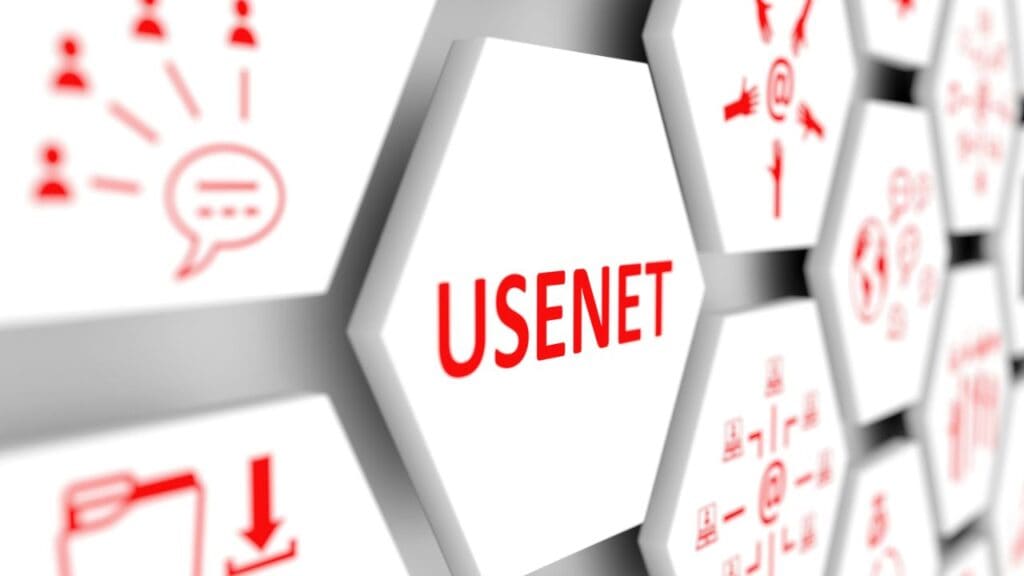Are you considering joining the world of Usenet, but you’re not sure where to start? You’re not alone. Many people have heard of Usenet, but few know how to get started. Some may not even be clear as to what exactly Usenet is and how they can use it. That’s why we’ve created this guide of things you should know about Usenet before beginning.

1. Usenet Was Created Before the Internet
Did you know that Usenet predates the Internet? Many consider Usenet to be the original social network. Usenet users could access files and then discuss them with others online, a concept that wasn’t yet known in the 1970s. Tom Truscott and Jum Ellis can be credited with creating Usenet. Usenet can also be credited with popular internet slang still used today, including LOL and BRB.
2. The Usenet System is Decentralized and Unmoderated
The Usenet system is decentralized and unmoderated. This means no single corporation or entity controls a single server with all user’s information. Although decentralized and unmoderated, Usenet is a safe platform with good organization, making it easy to access the information you want. Additionally, while there aren’t technical moderators, the Big 8 management board helps maintain a secure, well-formatted system.
3. Reviewing Download Limits Is Important When Choosing a Provider
One of the most important factors to consider when choosing a Usenet provider is download limits. The main purpose of Usenet is to search for and access files, and without enough storage, this may be limited. The Usenet provider you choose stores your files, meaning you’ll want to choose a provider with plenty of storage.
Retention periods refer to how many articles are available to search for and download with your Usenet provider. A higher retention rate is better because it means more usable and downloadable files will be available to you. When choosing a Usenet provider, you might also consider the number of servers and their location. Server location can affect overall speed.
4. Security Should Always Be a Priority
Usenet is considered a safe platform. All files on Usenet are encrypted and protected via SSL encryption. Users can also add another layer of safety by choosing a hosting provider with built-in security features. For example, many Usenet providers offer free VPN services that hide your identity and block your searchable history. Reviewing the best technology systems and brands can help you choose the right security tools.
5. Usenet Is Managed and Regulated
Usenet is a centralized server cluster managed and regulated by Usenet companies. The companies that manage Usenet are important in maintaining the infrastructure and ensuring ongoing success. However, it’s also decentralized and not moderated, making it a great place for free and open discussions on various topics.
6. All Usenet Topics Are Organized in the Big 8
Usenet organizes its files into the Big 8, which consists of the eight most common themes or topics. These themes include computers, humanities, news, recreation, science, social, talk, and miscellaneous. These different categories are called newsgroups. The concept of newsgroups has been around since the beginning of Usenet. Discussions within the different newsgroups are called threads, a word commonly used today on other social media platforms.
The Big 8 management board is in charge of managing and regulating the Big 8 topics. After a long period of minimal to no moderating, users reactivated the Big 8 management board in 2020.
7. You Need Certain Tools to Access Usenet
Unlike checking out a new online site, you can’t just go to a new website to access Usenet files. Instead, you’ll have to set up your system first, which requires choosing a Usenet provider. Usenet providers provide you with the tools you need to access files. You’ll also need an indexer and newsreader, which allow you to access and search files within the system. While this may seem like a lot of setup, it’s only a one-time thing. Once you have the necessary tools in place, you can freely access files and engage in newsgroup conversations.
8- Most Files on Usenet are NZB
Most of the files you’ll find on Usenet are structured in NZB format. This means that you need a special tool to search for and access them, which you can find through your Usenet provider.
9- Usenet is Not Peer-to-Peer
Despite being a decentralized system, Usenet is not peer-to-peer. Instead, it stores files on actual, physical servers managed by Usenet providers. What this means for you is that you get a more secure environment.,
Usenet may have been around for over 30 years, but that doesn’t mean it’s any less useful than it was the day it was first released. Many users still turn to Usenet today to access large files and discuss with others who share similar interests.